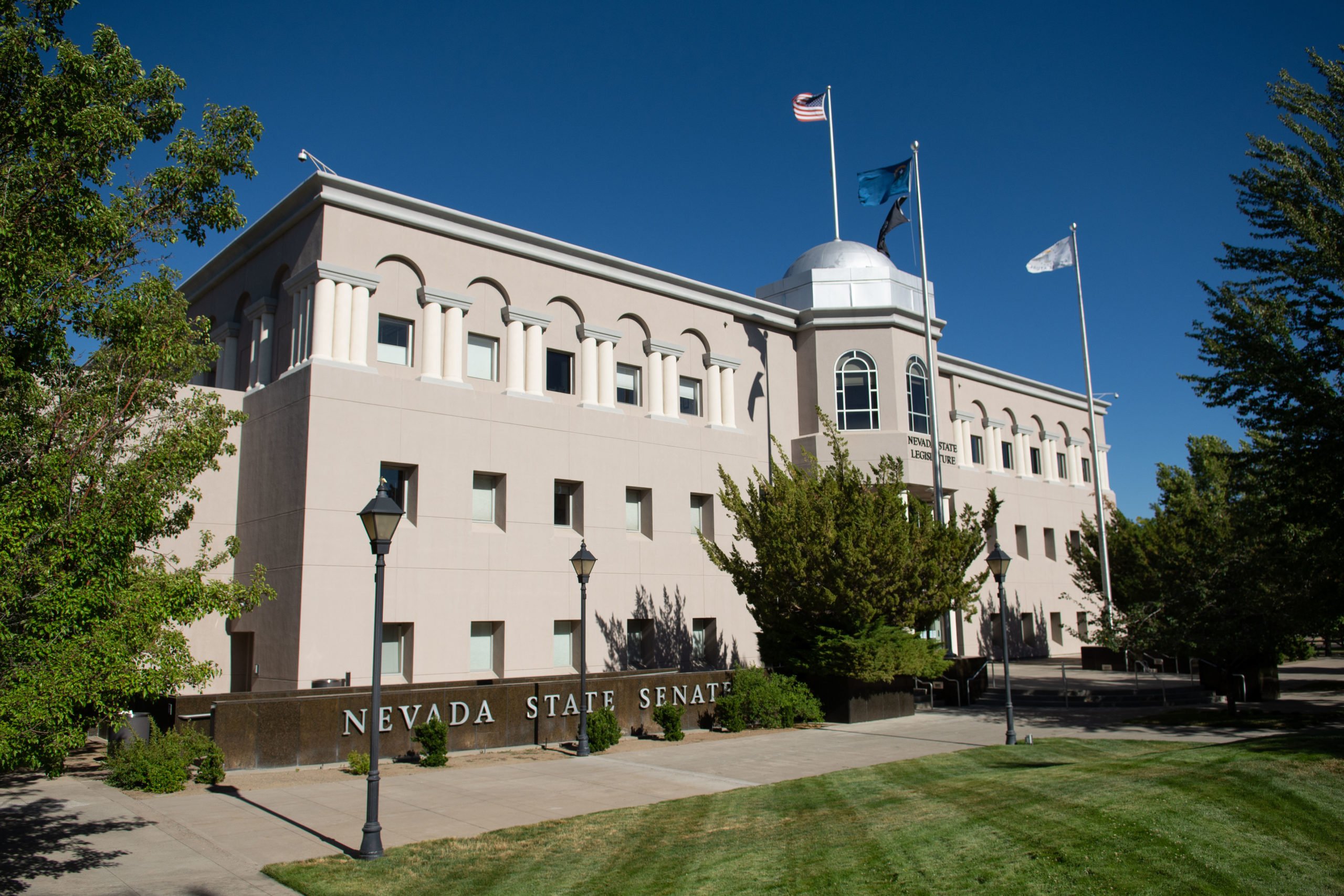by Michael Lyle, Nevada Current
January 4, 2022
More than 50 bills passed during the 2021 legislative session went into effect as new laws on Jan. 1.
They include measures to create birthing centers, switch the state to a presidential primary and help LGBTQ-owned businesses.
Several bills focus on the voting process.
After years of criticism that the state’s caucus system was confusing and clunky, Assembly Bill 126 converts Nevada’s presidential caucuses into primary elections.
Nevada is one of a few states that continued to rely on a caucus, which typically requires residents to publicly declare their preferred candidate.
Community organizers and progressive groups have pushed to have the system switched, arguing a caucus system often disenfranchises many voters.

“By moving to a state-run presidential primary election, we can better support working families,” Christine Saunders, the policy director of the Progressive Leadership Alliance of Nevada, said in testimony in support of the bill. “A primary election will allow all eligible Nevadans to be able to take advantage of the various ways to vote the state offers, like early voting and absentee ballots.”
The order of the states in the presidential nomination process has often faced criticism for favoring predominantly white states, such as Iowa and New Hampshire, over places with more Black and brown voters, the base of the Democratic Party.
The new primary system positions Nevada, a majority-minority state, to be the first to vote in the presidential primary, ahead of Iowa and New Hampshire, whose populations are less than 10% non-white.
While the intent is to propel Nevada ahead of the first two states, the order of the presidential primary isn’t completely settled. Officials from Iowa and New Hampshire indicated they would fight to keep their current spots.
Senate Bill 292 authorizes “straight-ticket” voting during a general election, which allows a person to vote for all the candidates of a political party at the top of the ballot with a click of a button.
Assembly Bill 121 allows people with disabilities to register to vote, request a ballot and cast an absentee ballot until the polls close on Election Day. Previously only members of the military and voters living overseas were able to do so.
During testimony for the bill, Emily Persaud-Zamora, executive director of Silver State Voices, said the legislation would “extend a decades-long program to a voting bloc that would greatly benefit from it.”
“By providing voters with disabilities access to this tool, this bill would ensure that this body is taking the proper steps to ensure that we make voting more accessible for all Nevada voters,” she said.
Numerous pieces of legislation that went into effect were also designed to expand health care access, including several bills focused around pregnancy and birth.
Assembly Bill 287 allows for state licensure of freestanding birth centers, a move bill sponsor Democratic Assemblywoman Daniele Monroe Moreno believes could help reduce maternal mortality rates, in particular the high rate of Black maternal deaths.
The law requires birthing centers to be located within 30 miles of a hospital that offer pregnancy-related services and authorizes freestanding birthing centers to serve as training facilities for certain health care providers.
Assembly Bill 256 requires Nevada Medicaid to provide coverage of doula services.
Doulas provide parent support during and after labor, including giving advice on labor positions and breastfeeding. Many supporters of the legislation argued increasing access to doulas could also make a difference in reducing maternal mortality rates.
Assembly Bill 196 requires courthouses to contain a lactation room for breastfeeding.
Another health care-related bill that went into effect is Assembly Bill 358, which improves access to Medicaid for people leaving prison. The legislation requires a person’s Medicaid eligibility to be suspended rather than terminated when incarcerated.
Other new laws in effect include:
- Senate Bill 188 establishes an Individual Development Account Program, housed in the State Treasurer’s office, to allow low-income households to set up a savings account. Money in the account can be used for specific purposes such as paying rent, purchasing a home, starting a small business, job training or postsecondary education. To qualify for an account, a person must live in a housing project, be a recipient of Medicaid or provide foster care or be a fictive kin guardian, or non-relative guardian, of a child placed by child welfare services.
- Senate Bill 237 adds LGTBQ-owned businesses to the list of disadvantaged and emerging small businesses that are entitled to receive certain business financing information and loans through the Governor’s Office of Economic Development.
- Assembly Bill 118 changes car seat requirements. Instead of using weight requirements, the law says children 6 or younger who are less than 57 inches tall must be secured in a car seat. Also, all children under age 2 must now be in rear-facing car seats.
- Assembly Bill 254 prohibits colleges and sports organizations from preventing student athletes from being compensated for the use of their name, image or likeness.
Nevada Current is part of States Newsroom, a network of news bureaus supported by grants and a coalition of donors as a 501c(3) public charity. Nevada Current maintains editorial independence. Contact Editor Hugh Jackson for questions: [email protected]. Follow Nevada Current on Facebook and Twitter.


